Biohacking is altering your own biology to increase longevity! This covers a wide range of activities such as: enhancing sleep, stimulating stem cell production, or even increasing white blood cells to optimize your body's immune system.
Even if you haven’t heard the word biohacking, you must have encountered some version of it. Maybe you have seen the CEO of Twitter, Jack Dorsey, extolling the benefits of intermittent fasting and drinking salt juice each morning.
Maybe you have read about the former NASA employee, Josia Zayner, injecting himself with DNA, making use of gene-editing technology CRISPR. You might have heard about Bay Area folks engaging in dopamine fasting. All these are some forms of biohacking, a broad term for a lifestyle that’s becoming increasingly popular. [1]
Biohacking, also called DIY biology, is an extremely broad term and covers a wide range of activities, from performing science experiments on yeast or other organisms to tracking down your own sleep and diet to altering your own biology by pumping a younger person’s blood into your veins hoping that it will fight Aging.
Depending on whom you ask about biohacking, you will get a different definition. Since it encompasses a dizzying range of pursuits, we look at biohacking as an attempt to manipulate the brain and body in order to optimize performance, outside the realm of traditional medicine.
Why is Biohacking Becoming Popular?
On a basic level, biohacking comes down to something that we can all relate to – the desire to feel better and to see just how far we can push the human body. This desire comes in a range of flavors. While some people don’t want to feel sick, others want to be as smart and strong as possible for as long as possible, basically extending their life span.
There are certain concrete hacks that you can use yourself right now to go from sick to healthy or healthy to enhanced. Dave Asprey, a computer security guy, calls himself a biohacker as he hacks his own body.
He has received attention both online and at conferences and has used biohacking and new technical measurement tools and a low toxic coffee to alter his cognition, his weight, and general health. Today, it’s not only about him, as a lot of people are trying various biohacking techniques. [3]
What is the Difference between Biohacking and Traditional Medicine?
Some forms of biohacking go far beyond traditional medicine and others bleed into it. Plenty of age-old techniques such as meditation and fasting can be considered a basic type of biohacking. Going to a spin class and taking antidepressants also fall into this category.
What differentiates biohacking is arguably not that it’s a different genre of activity but that the activities are undertaken with a certain mindset. The underlying philosophy is that we do not need to accept our shortcomings but can engineer our way past them using a range of high and low-tech solutions.
The goal is to improve cell regeneration
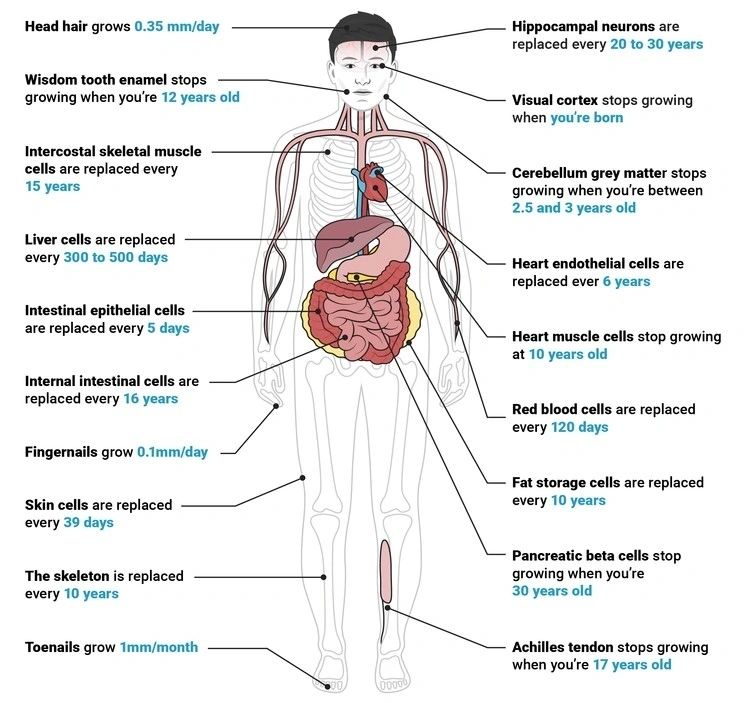
Biohacking nootropics are huge in Silicon Valley and many venture capital-funded firms are focused on nootropics. You may have already tried a biohacking nootropic which is caffeine. Other widely used nootropics include piracetam.
How to Biohack At Home
Here is a list of some relatively safe hacks you can try at home.
Drink Caffeine
Caffeine is a well-known productivity booster. If you don’t use it already, begin with an 8 ounce serving of black coffee, green tea, or caffeinated foods like dark chocolate. Have caffeine at the same time every day and keep a journal of how it makes you feel in the minutes and hours afterward. You will probably feel more focused, anxious, or tired. Try tweaking the dose until you can find the amount that works best for your goal. [4]
There is even a coffee with a biohacker twist known as bulletproof coffee. There is a debate on the use of bulletproof coffee. Talk to your doctor before trying it, especially if you have underlying health conditions.
Try an Elimination Diet
An elimination diet is exactly what it sounds like. In this, you get rid of something from your diet and then re-introduce it to see how it affects your body. You need to remove one or two things from your diet completely and then slowly reintroduce them into your diet after two weeks.
During the reintroduction phase, keep a close eye on what symptoms you get such as rashes, stomach pain, fatigue, constipation, diarrhea, breakout, and other abnormal symptoms. This means that you are allergic to that particular food.
Try Intermittent Fasting
Intermittent fasting comes with a ton of health benefits without impacting metabolism or muscle mass and doesn’t lead to eating disorders. Intermittent fasting involves restricting eating hours to a set number and fasting for the rest of the day. Fasting in this way has several health benefits.
- It lowers insulin level so that your body can burn fat more efficiently
- It helps your cells repair any damaged tissues.
- It protects you from diseases like cancer
When trying intermittent fasting, one should focus on whole, nutrient-dense, unprocessed foods like fruits, vegetables, nuts, healthy fats, lean proteins, and healthy carbs.
This will not only improve your overall health but the balanced nutrition you get from such a diet will ensure you don’t end up hungry while fasting or run into the risk of nutritional deficiencies. [2]
Conclusion
Biohacking has some benefits. Some methods are easy to do and easy to reverse as well if something goes wrong. But you must be careful. Experimenting on yourself without taking proper precautions can lead to serious side effects.
Talk to a medical professional before making any significant changes to your diet and make sure to do proper research before putting any foreign substance into your body.
References:
https://www.vox.com/future-perfect/2019/6/25/18682583/biohacking-transhumanism-human-augmentation-genetic-engineering-crispr
https://www.sepalika.com/intermittent-fasting/intermittent-fasting-your-ultimate-food-list-guide/
https://www.pbs.org/newshour/science/biohacking-care
https://www.healthline.com/health/biohacking
Biohackers
Wim Hof

Wim Hof, also known as The Iceman, is a Dutch extreme athlete noted for his ability to withstand freezing temperatures. He has set Guinness world records for swimming under ice and prolonged full-body contact with ice.
Dr. David Sinclair
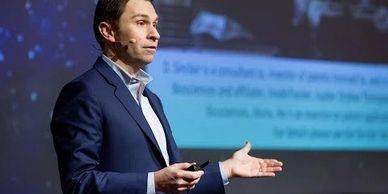
Dr. David Sinclair is a leading world authority on genetics and longevity, and reveals a bold new theory for why we age: “Aging is a disease, and that disease is treatable.”
Tyler Lebaron
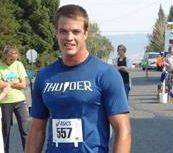
Tyler W. LeBaron is the Founder and Executive Director of the science-based nonprofit Molecular Hydrogen Institute. His background is in biochemistry and exercise physiology.
Dave Asprey
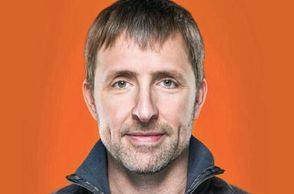
Dave lost 100 pounds without counting calories or excessive exercise, used techniques to upgrade his brain and lift his IQ by 20 points, and lowered his biological age while learning to sleep more efficiently in less time. Learning to do these seemingly impossible things transformed him into a better entrepreneur, a better husband, and a better father.
Ben Greenfield
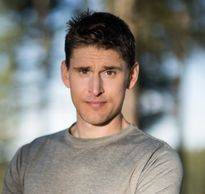
Ben Greenfield is a prominent biohacking expert voice in the burgeoning triathlon industry. Known as "The Brain" of triathlon, he holds a master's degree in exercise science and biomechanics, and ISSN Spots Nutrition Certification, a Serotta Bike Fit Certification, and the highest attainable certification as a Strength & Conditioning Coach by the NSCA.
Biohacking
Even if you haven’t heard the word biohacking, you must have encountered some version of it. Maybe you have seen the CEO of Twitter, Jack Dorsey, extolling the benefits of intermittent fasting and drinking salt juice each morning. Maybe you have read about the former NASA employee, Josia Zayner, injecting himself with DNA, making use of gene-editing technology CRISPR. You might have heard about Bay Area folks engaging in dopamine fasting. All these are some forms of biohacking, a broad term for a lifestyle that’s becoming increasingly popular. [1]
Biohacking, also called DIY biology, is an extremely broad term and covers a wide range of activities, from performing science experiments on yeast or other organisms to tracking down your own sleep and diet to altering your own biology by pumping a younger person’s blood into your veins hoping that it will fight to age. Depending on whom you ask about biohacking, you will get a different definition. Since it encompasses a dizzying range of pursuits, we look at biohacking as an attempt to manipulate the brain and body in order to optimize performance, outside the realm of traditional medicine.
On a basic level, biohacking comes down to something that we can all relate to - the desire to feel better and to see just how far we can push the human body. This desire comes in a range of flavors. While some people don’t want to feel sick, others want to be as smart and strong as possible for as long as possible, basically extending their life span.
There are certain concrete hacks that you can use yourself right now to go from sick to healthy or healthy to enhanced. Dave Asprey, a computer security guy, calls himself a biohacker as he hacks his own body. He has received attention both online and at conferences and has used biohacking and new technical measurement tools and a low toxic coffee to alter his cognition, his weight, and general health. Today, it's not only about him, as a lot of people are trying various biohacking techniques. [3]
Some forms of biohacking go far beyond traditional medicine and others bleed into it. Plenty of age-old techniques such as meditation and fasting can be considered a basic type of biohacking. Going to a spin class and taking antidepressants also fall into this category. What differentiates biohacking is arguably not that it's a different genre of activity but that the activities are undertaken with a certain mindset. The underlying philosophy is that we do not need to accept our shortcomings but can engineer our way past them using a range of high and low-tech solutions.
Biohacking nootropics are substances in natural, supplement, food, or beverage form used to increase cognitive function. This includes your mood, attention, and productivity span.
Biohacking nootropics are huge in Silicon Valley and many ventures capital-funded firms are focused on nootropics. You may have already tried a biohacking nootropic which is caffeine. Other widely used nootropics include piracetam.
In food or drinks, biohacking nootropics are usually safe unless consumed at high levels. For instance, too much caffeine can cause caffeine overdose. Medications used as biohacking nootropics can be dangerous unless used as directed by medical professionals.
An elimination diet is exactly what it sounds like. In this, you get rid of something from your diet and then re-introduce it to see how it affects your body. You need to remove one or two things from your diet completely and then slowly reintroduce them into your diet after two weeks.
During the reintroduction phase, keep a close eye on what symptoms you get such as rashes, stomach pain, fatigue, constipation, diarrhea, breakout, and other abnormal symptoms. This means that you are allergic to that particular food.
BIOHACKING COURSE
Learn how to execute the top Biohacking Techniques backed by scientific research.
Disclaimer
THESE STATEMENTS HAVE NOT BEEN EVALUATED BY THE FDA AND ARE NOT INTENDED TO DIAGNOSE, TREAT OR CURE ANY DISEASE. Although all measures are taken to ensure that the contents of the website are accurate and up to date, all information contained on it is provided ‘as is’. We make no warranties or representations of any kind concerning the accuracy or suitability of the information contained on this website.
To the extent permitted by law, this website shall not be held liable for any direct, incidental, consequential, indirect, or punitive damages arising out of access to or use of any content available on this website, regardless of the accuracy or completeness of any such content. Always seek the advice of your physician or other qualified healthcare professional with questions that you may have regarding your medical condition.
